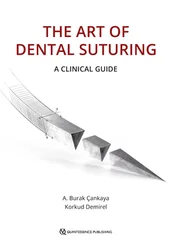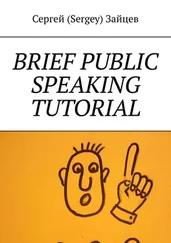You say Massa_CHU_setts and Minne_AP_olis, you do not emphasize each
syllable alike, but hit the accented syllable with force and hurry over
the unimportant ones. Now why do you not apply this principle in
speaking a sentence? To some extent you do, in ordinary speech; but do
you in public discourse? It is there that monotony caused by lack of
emphasis is so painfully apparent.
So far as emphasis is concerned, you may consider the average sentence
as just one big word, with the important word as the accented syllable.
Note the following:
"Destiny is not a matter of chance. It is a matter of choice."
You might as well say _MASS-A-CHU-SETTS_, emphasizing every syllable
equally, as to lay equal stress on each word in the foregoing sentences.
Speak it aloud and see. Of course you will want to emphasize _destiny_,
for it is the principal idea in your declaration, and you will put some
emphasis on _not_, else your hearers may think you are affirming that
destiny _is_ a matter of chance. By all means you must emphasize
_chance_, for it is one of the two big ideas in the statement.
Another reason why _chance_ takes emphasis is that it is contrasted with
_choice_ in the next sentence. Obviously, the author has contrasted
these ideas purposely, so that they might be more emphatic, and here we
see that contrast is one of the very first devices to gain emphasis.
As a public speaker you can assist this emphasis of contrast with your
voice. If you say, "My horse is not _black_," what color immediately
comes into mind? White, naturally, for that is the opposite of black. If
you wish to bring out the thought that destiny is a matter of choice,
you can do so more effectively by first saying that "_DESTINY_ is _NOT_
a matter of _CHANCE_." Is not the color of the horse impressed upon us
more emphatically when you say, "My horse is _NOT BLACK_. He is _WHITE_"
than it would be by hearing you assert merely that your horse is white?
In the second sentence of the statement there is only one important
word--_choice_. It is the one word that positively defines the quality
of the subject being discussed, and the author of those lines desired to
bring it out emphatically, as he has shown by contrasting it with
another idea. These lines, then, would read like this:
"_DESTINY_ is _NOT_ a matter of _CHANCE_. It is a matter of _CHOICE_."
Now read this over, striking the words in capitals with a great deal of
force.
In almost every sentence there are a few _MOUNTAIN PEAK WORDS_ that
represent the big, important ideas. When you pick up the evening paper
you can tell at a glance which are the important news articles. Thanks
to the editor, he does not tell about a "hold up" in Hong Kong in the
same sized type as he uses to report the death of five firemen in your
home city. Size of type is his device to show emphasis in bold relief.
He brings out sometimes even in red headlines the striking news of the
day.
It would be a boon to speech-making if speakers would conserve the
attention of their audiences in the same way and emphasize only the
words representing the important ideas. The average speaker will deliver
the foregoing line on destiny with about the same amount of emphasis on
each word. Instead of saying, "It is a matter of _CHOICE_," he will
deliver it, "It is a matter of choice," or "_IT IS A MATTER OF
CHOICE_"--both equally bad.
Charles Dana, the famous editor of _The New York Sun_, told one of his
reporters that if he went up the street and saw a dog bite a man, to pay
no attention to it. _The Sun_ could not afford to waste the time and
attention of its readers on such unimportant happenings. "But," said Mr.
Dana, "if you see a man bite a dog, hurry back to the office and write
the story." Of course that is news; that is unusual.
Now the speaker who says "_IT IS A MATTER OF CHOICE_" is putting too
much emphasis upon things that are of no more importance to metropolitan
readers than a dog bite, and when he fails to emphasize "choice" he is
like the reporter who "passes up" the man's biting a dog. The ideal
speaker makes his big words stand out like mountain peaks; his
unimportant words are submerged like stream-beds. His big thoughts stand
like huge oaks; his ideas of no especial value are merely like the grass
around the tree.
From all this we may deduce this important principle: _EMPHASIS_ is a
matter of _CONTRAST_ and _COMPARISON_.
Recently the _New York American_ featured an editorial by Arthur
Brisbane. Note the following, printed in the same type as given here.
=We do not know what the President THOUGHT when he got that message, or
what the elephant thinks when he sees the mouse, but we do know what the
President DID.=
The words _THOUGHT_ and _DID_ immediately catch the reader's attention
because they are different from the others, not especially because they
are larger. If all the rest of the words in this sentence were made ten
times as large as they are, and _DID_ and _THOUGHT_ were kept at their
present size, they would still be emphatic, because different.
Take the following from Robert Chambers' novel, "The Business of Life."
The words _you_, _had_, _would_, are all emphatic, because they have been
made different.
He looked at her in angry astonishment.
"Well, what do _you_ call it if it isn't cowardice--to slink off
and marry a defenseless girl like that!"
"Did you expect me to give you a chance to destroy me and poison
Jacqueline's mind? If I _had_ been guilty of the thing with
which you charge me, what I have done _would_ have been
cowardly. Otherwise, it is justified."
A Fifth Avenue bus would attract attention up at Minisink Ford, New
York, while one of the ox teams that frequently pass there would attract
attention on Fifth Avenue. To make a word emphatic, deliver it
differently from the manner in which the words surrounding it are
delivered. If you have been talking loudly, utter the emphatic word in a
concentrated whisper--and you have intense emphasis. If you have been
going fast, go very slow on the emphatic word. If you have been talking
on a low pitch, jump to a high one on the emphatic word. If you have
been talking on a high pitch, take a low one on your emphatic ideas.
Read the chapters on "Inflection," "Feeling," "Pause," "Change of
Pitch," "Change of Tempo." Each of these will explain in detail how to
get emphasis through the use of a certain principle.
In this chapter, however, we are considering only one form of emphasis:
that of applying force to the important word and subordinating the
unimportant words. Do not forget: this is one of the main methods that
you must continually employ in getting your effects.
Let us not confound loudness with emphasis. To yell is not a sign of
earnestness, intelligence, or feeling. The kind of force that we want
applied to the emphatic word is not entirely physical. True, the
emphatic word may be spoken more loudly, or it may be spoken more
softly, but the _real_ quality desired is intensity, earnestness. It
must come from within, outward.
Last night a speaker said: "The curse of this country is not a lack of
education. It's politics." He emphasized _curse, lack, education,
politics_. The other words were hurried over and thus given no
comparative importance at all. The word _politics_ was flamed out with
great feeling as he slapped his hands together indignantly. His emphasis
Читать дальше












